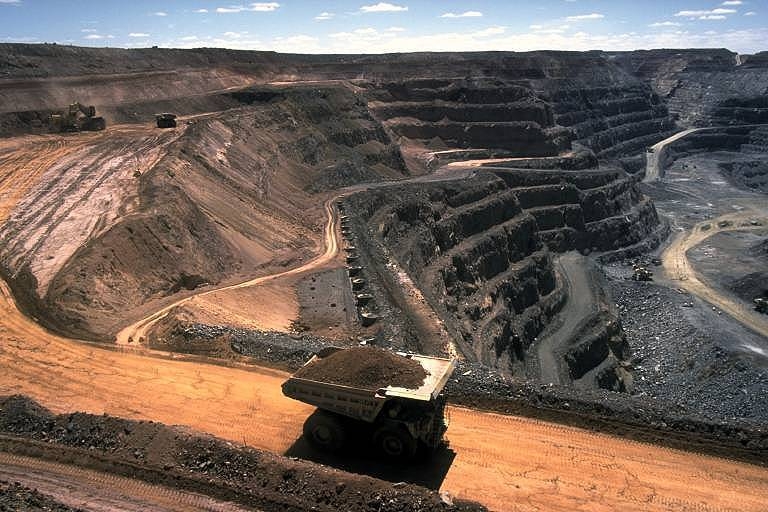Coal-Black Politics: Partisanship Contributions & the Coal Lobby

The coal lobby desperately attempts to sustain the industry.
By Kathryn Ward
[divider]
[dropcap]C[/dropcap]oal powered the industrial revolution, and through its fumes the United States marched to the top of the world order on the profits of its factories shoveling the black gold. The consequences of the century and a half of carbon emissions have been made clear by leagues of scientists: global warming is real, and its effects on the human population are soon to be disastrously felt. However, a move away from coal, however logical from a climate standpoint, is contentious for a myriad of other reasons.
Economically, old industries, from the coal mining itself to the periphery companies supporting them, would fall in the face of new energy players, causing a period of unemployment, financial hardship, and overall instability. Furthermore, the infrastructure and systems for coal electricity are in place, and their replacement would be expensive both financially and politically.
Under the Obama Administration, coal markets have fallen to historically low levels for both legislative and market reasons, causing them to fight bitterly for their own survival. In 1960, no coal company had to worry about its market share relative to natural gas or solar power. Today, 2016 companies are losing ground. The natural gas boom starting a decade ago eroded their market position, and growth in renewable energy threatens them further.
The Obama administration confirmed the fears of the coal lobby that opposed it in 2008. Coal tops CO2 emissions, and from the (defeated) cap-and-trade proposal in 2009 to the Clean Power Plan, the government explicitly targeted the high emissions resulting from coal. The usage of the EPA widened as environmental legislation encountered strong opposition from Republicans and labor-backed Democrats alike in both houses.
The EPA has extensively utilized new permitting power under the Clean Water Act and the Clean Air Act to prevent projects that would, in their view, unduly release greenhouse gases. The Clean Power Plan reaches the furthest for climate-friendly aims, and requires states to meet carbon emission standards, reduce pollutants contributing to global warming by 25%, and mandates 30% more renewable energy generation in 2030.
The Supreme Court ordered the EPA to halt enforcement of the act in February. But, while President Obama’s legislative attempts to end US reliance on coal have largely failed, the EPA acts- including the Mandatory Reporting of Greenhouse Gas- have created a hostile environment for coal interests as their market becomes increasingly competitive with natural gas.
As a result of the Obama-led Democrat move towards environmentalism, coal interests have increased and concentrated their political contributions, setting into stark relief the partisan nature of energy policy. In 2008, declared coal interests sent 76% of their direct political contributions to Republicans. Partisanship and scale has soared into drastic territory today however as coal is increasingly threatened by government and markets alike. Registered coal interests increased their direct political contributions from $3.5 million in 2008 to $15.9 million in 2012- a 343% increase. If 2016 quarter-term projections continue, coal interests will pour $20.2 million in this election cycle. Democratic recipients plunged from 26% of donations in 2008 to only 9% in 2012. In the 2014 election cycle, Democrats only received 4% of donations from coal lobbies.
Furthermore, voting patterns of coal states reflect the desperation of coal interests to preserve their future. Wyoming produces the most coal in the US by over two-fold, and has suffered extreme losses in the market downturn over the last half-decade in particular. Over 70% of the state’s general funds are generated directly from energy production, and accordingly, the general-fund income is expected to fall from $3.48 billion in the 2015/2016 budget cycle to $2.95 billion in 2017/2018 in four years alone. The Republican primary winner in Wyoming was Ted Cruz with over 33% of the popular vote. Ted Cruz has a score of 0, out of 100, on a National Environmental Voting Scorecard; the average republican score was closer to 10. Kentucky and Pennsylvania have GOP-leading Donald Trump holding a narrow lead over Cruz, but similar coal-producing Montana and Texas have voted or are expected to choose Cruz.
The Republican Party has staked their claim on the anti-energy change platform, and the extreme partisans of both campaign donations and political action, correlated or caused, reflects a crisis point for renewable and dirty energy. Rational, incremental steps towards a cleaner future is impossible with the widening rift between the two political ideologies that prevents compromise and action alike.
[hr]
Kathryn is a sophomore in Timothy Dwight college. You can contact her at kathryn.ward@yale.edu.